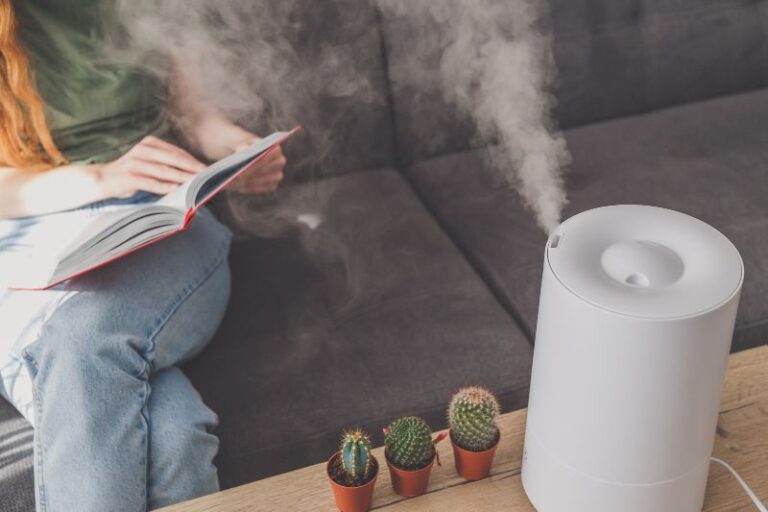Indoor air quality plays a vital role in your overall health and well-being. Poor air quality can cause issues such as allergies, respiratory problems, and fatigue. Thankfully, several effective ways exist to improve indoor air quality, creating a safer and more comfortable environment for you and your family. Allen Service, a trusted provider of HVAC services in Northern Colorado, is here to help you take steps towards cleaner air in your home.
1. Keep Your Home Clean
One of the simplest ways to improve air quality in your home is to maintain cleanliness. Dust, pet dander, and pollen can accumulate on surfaces and carpets, contributing to poor indoor air. Regular cleaning can significantly reduce these contaminants:
- Vacuum carpets and rugs regularly, especially in high-traffic areas.
- Dust surfaces such as shelves, window sills, and furniture to prevent buildup.
- Wash bedding and curtains to eliminate dust mites and allergens.
2. Invest in an Air Purifier
Air purifiers are designed to remove harmful particles from the air, making them a great solution for households with allergies or asthma. These devices filter out pollutants such as dust, smoke, and pet dander:
- HEPA filters are particularly effective at capturing small particles.
- Activated carbon filters can absorb odors and chemicals, improving air freshness.
At Allen Service, we recommend placing air purifiers in areas where you spend the most time, such as bedrooms and living rooms. Check out our air quality services to learn more about how we can help you find the right solution for your home.
3. Control Humidity Levels
Humidity can lead to the growth of mold and mildew, both of which can negatively impact air quality. Maintaining the right level of humidity is key:
- Use a dehumidifier in areas prone to moisture, such as basements and bathrooms.
- Repair any leaks to prevent water from seeping into walls or floors.
- Ventilate rooms where moisture builds up, especially after showering or cooking.
Keeping humidity levels between 30% and 50% is ideal for preventing mold and maintaining good quality.
4. Change Your HVAC Filters Regularly
Your HVAC system plays a vital role in maintaining air quality in your home. The filters in your system capture dust, dirt, and other pollutants as air circulates. Over time, these filters can become clogged, reducing their effectiveness:
- Change your filters every three months, or more often if you have pets or allergies.
- Consider upgrading to high-efficiency HVAC filters to trap smaller particles.
If you’re unsure how to replace your filters or want advice on choosing the best option, Allen Service can assist with HVAC maintenance to help improve your home’s air quality.
5. Ventilate Your Home
Proper ventilation is essential for circulating fresh air and reducing the concentration of indoor pollutants. By allowing outdoor air to enter your home, you can dilute any airborne contaminants:
- Open windows whenever possible to let in fresh air, especially after using cleaning products.
- Use exhaust fans in the kitchen and bathroom to vent out steam, smoke, and odors.
If your home doesn’t have adequate ventilation, consider talking to Allen Service about installing a mechanical ventilation system for consistent airflow.
6. Introduce Indoor Plants
Certain house plants can naturally purify the air in your home. While they aren’t a substitute for an air purifier or proper ventilation, they can enhance air quality by absorbing pollutants:
- Aloe Vera and spider plants were known to remove toxins like formaldehyde and benzene.
- English Ivy can help reduce mold spores in the air.
Not only do indoor plants add a touch of greenery to your space, but they also contribute to better air quality.
7. Avoid Harsh Chemicals
The cleaning products and air fresheners you use in your home can release harmful chemicals into the air, contributing to poor indoor air quality. Instead, choose natural alternatives:
- Use non-toxic cleaning products made from ingredients like vinegar and baking soda.
- Avoid synthetic air fresheners, which can contain volatile organic compounds (VOCs).
Making small product changes can go a long way in naturally improving your indoor air quality.
8. Seal Cracks and Leaks
Air pollutants from the outside, such as pollen and vehicle emissions, can enter your home through cracks and gaps in windows and doors. Sealing these openings will prevent outdoor contaminants from affecting your indoor air:
- Check for drafts around windows and doors and seal them with weather stripping or caulk.
- Insulate your home to improve energy efficiency and keep pollutants out.
Properly sealing your home enhances air quality and helps with energy savings. For professional assistance, Contact Allen Service to schedule an inspection.
9. Schedule Regular HVAC Maintenance
Your HVAC system significantly impacts your home’s air quality. Over time, dust, dirt, and debris can accumulate in the ducts, affecting the cleanliness of the air that circulates throughout your home. Regular HVAC maintenance can prevent this.
- Duct cleaning removes contaminants trapped inside your air ducts.
- HVAC tune-ups keep your system running efficiently, improving air quality and energy savings.
Allen Service offers comprehensive HVAC services to keep your system in top shape and ensure clean air for your home.
Why Choose Allen Service?
With over 60 years of experience in plumbing, heating, and air conditioning services, Allen Service is committed to providing high-quality solutions that improve your home’s air quality. Here’s why you should trust us:
- Expertise – Our certified technicians are knowledgeable in all aspects of HVAC and air quality systems.
- Reliability – We offer prompt, professional services you can count on, ensuring your home stays comfortable year-round.
- Customer Satisfaction – Our team is dedicated to providing exceptional service so that all of your concerns are addressed.
For more information on improving air quality in your home or to schedule a service, visit the Allen Service website or call us at (970) 431-6574.







